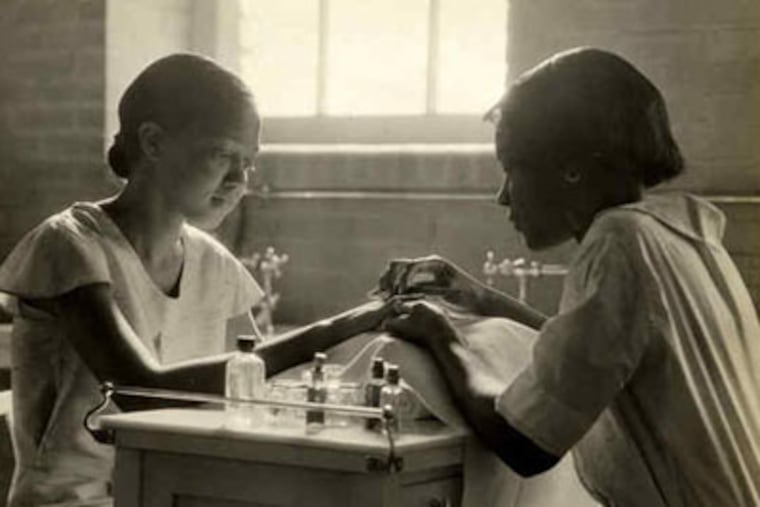Jonathan Storm: A school ahead of its time
In the mad dash into the future, important things can get left behind. A thought-provoking documentary airing Monday at 10 p.m. on WHYY TV12 outlines the story of the Bordentown Manual Training and Industrial School for Colored Youth, a distinguished New Jersey institution unceremoniously shuttered 55 years ago.

In the mad dash into the future, important things can get left behind.
A thought-provoking documentary airing Monday at 10 p.m. on WHYY TV12 outlines the story of the Bordentown Manual Training and Industrial School for Colored Youth, a distinguished New Jersey institution unceremoniously shuttered 55 years ago.
Its name alone demonstrates that the school belonged to a different time, and it's not surprising that filmmaker Dave Davidson titled his one-hour movie A Place Out of Time - The Bordentown School.
Full of old pictures and footage, and featuring recollections of graduates and commentary by college professors (often the talking heads fill both roles), the quiet film is a love note to a place that was an incubator for black pride, "providing a substantive first step," as one commentator says, "toward the making of a people who would be ready for the civil rights movement."
That movement helped convert the reputation of the school from educational utopia to Jim Crow academy, a reputation thoroughly undermined by the movie and the school's graduates.
Brown v. Board of Education, and a governor greedy for the Georgian buildings and 400-acre campus that would have made the trustees of Lawrenceville or The Hill School drool, closed the all-black school.
The student body was not as privileged as those at private schools. "There was a bed . . . with two sheets on it," explains John Medley, Class of 1954, the school historian, "one on the top and one on the bottom. Can you imagine that?"
Medley also describes aspects of the school's philosophy: "There was no fooling around. There was no nurse-maiding you. You get it, and let's get on up."
Others broaden the description of a safe, secure place, where teachers lived on campus and served as surrogate parents, and skeptical children unhappily separated from their parents in September were reluctant to leave at Christmas, when the first opportunity to go home came around.
Students learned discipline, self-confidence, academics, and a trade, somewhat of a requirement for black schools after an august, all-white commission meeting in the late 19th century decided vocational training was vital to "the education of the Negro."
And it wasn't the worst idea, says Barbara Wheeler, Class of '52, professor of anthropology at Kean University. Her Columbia Ph.D. may have helped earn an assistant professorship, but she earned more money at the time with her beauty shop.
We can't go back, but films like A Place Out of Time remind us that the past wasn't always horrible and simpleminded, and that it can provide insight into the problems of the present.
Jonathan Storm:
Television
A Place Out of Time
- The Bordentown School
10 p.m. Monday on WHYY TV12